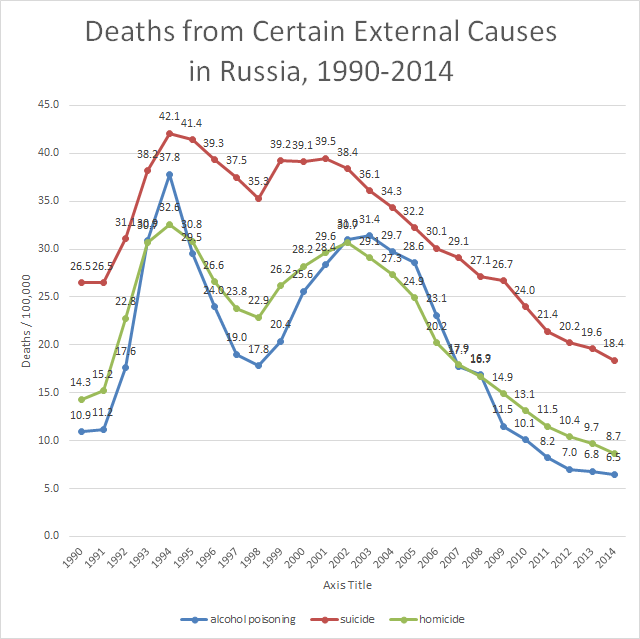If you are talking about poverty, nominal GDP doesn't say much, because it doesn't take internal prices into account.
For example, how much do you pay for Internet access? I have 100Mb/s unlimited plan for ~8$ a month. In Canada it was about an order of magnitude more expensive.
Price for all utilities, heating, electricity, water, etc. is less than 100$ a month.
Can you give example of freedom you have and I don't?
I'll go ahead and try to answer for him.
One freedom that is lacking in Russia is the ability to deal with government bureaucrats and police without having to bribe them. A friend of mine who studied abroad in Moscow in 2009 reported that he was one of only two people in his 4-month program who never had to bribe the police at any point. American police can certainly be brutal, particularly if you're poor and/or a minority, but it's very rare for them to harass people for bribes.
There's not much of a sense of paranoia of serious consequences in the US if you openly oppose the government. My impression is that people who write seriously critical blog posts and the like against the government are fairly concerned that they will be the victims of selective enforcement of very broadly written laws, or that they will be blacklisted and have trouble seeking employment, especially in the public sector. Also, the occasional murders of opposition leaders like Nemtsov seems to cause dissidents to be afraid that the same thing will happen to them, even though most are not high-profile enough for there to be a serious risk. Whether Putin is behind the killings or not, they seem to have a chilling effect on free speech.
Flawed as the US system is, enough elections are genuinely competitive that it is common for the politicians in power to be defeated and replaced with a new set of politicians who have very different policies. Despite the dominance of the two parties, they hold primary elections that allow for a fair amount of pluralism within parties, as was on display in the 2016 elections. Russia, on the other hand, is a dominant-party system where nobody expects Putin or United Russia to have any serious competition. I'm not sure what would happen if his approval rating fell to 40%, but the amount of ballot stuffing is high enough that Putin or UR would still probably win even against a strong opponent. So, the freedom to elect our politicians in fair elections is much stronger here, even if it's nowhere near perfect.
The thing about modern authoritarian regimes is that they're generally tolerable and don't feel particularly oppressive provided you don't step outside the lines of acceptable discourse. North Korea is pretty much the only state left where even minor complaints or jokes might doom you to a labor camp. But at the same time, enough social control is exerted to make it practically impossible to peacefully change the regime. Putin's a master of moderate 21st century authoritarianism, where there's a "soft dictatorship" that cannot be removed, but which does genuinely care about public opinion and tolerates mild dissent more than, say, the USSR post-Stalin (to say nothing of how bad it was under Stalin).





